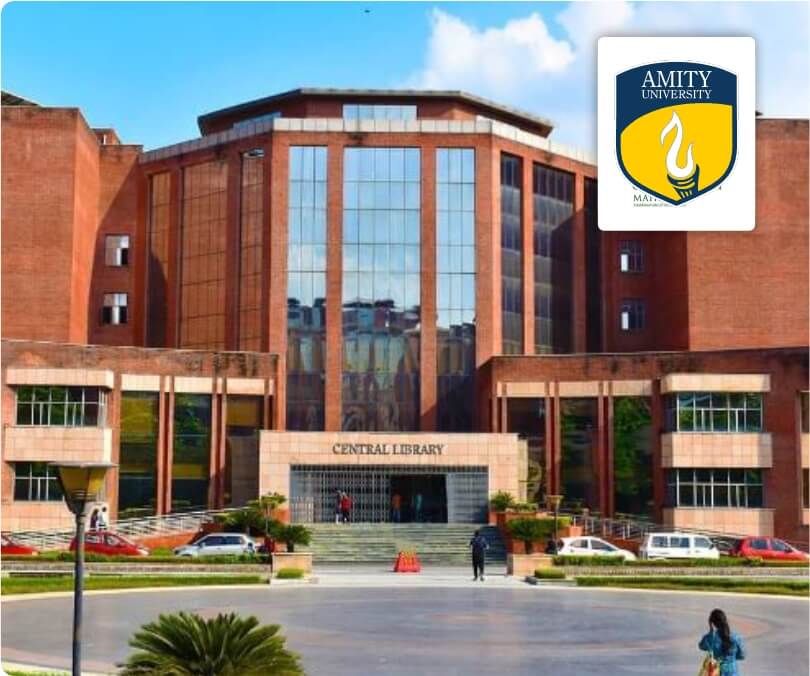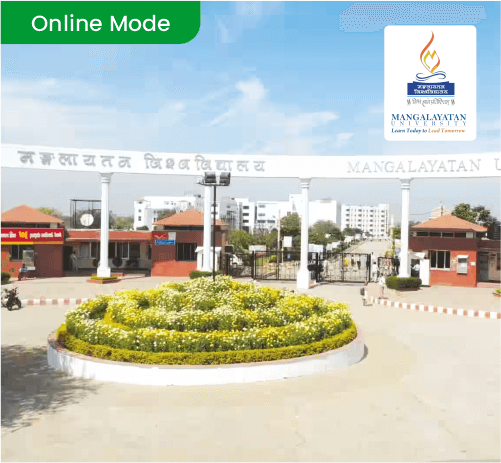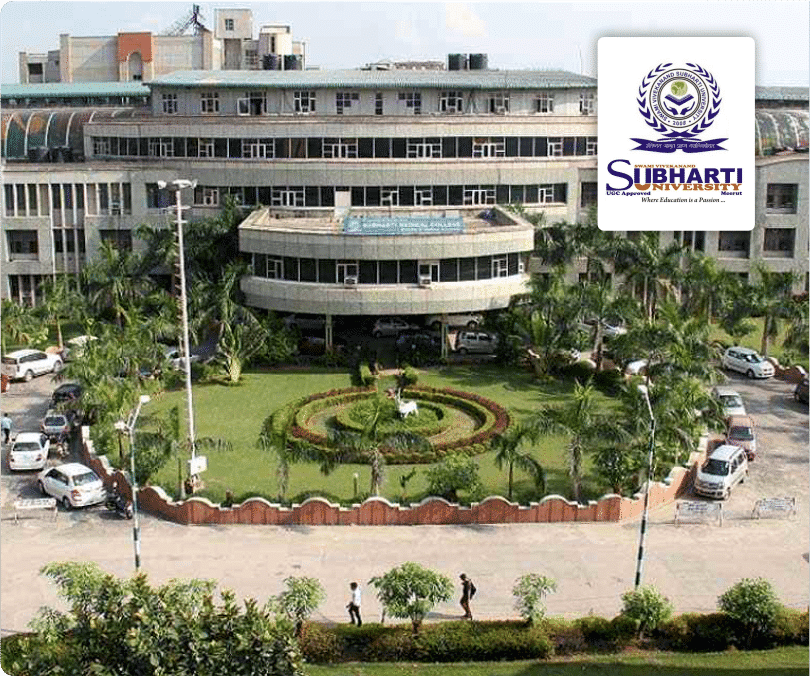
Top 5 MBA Entrance Exams for Government Colleges
Securing a seat in a top government MBA college is the dream of every aspiring business leader, right? But turning that dream into reality takes more than wishful thinking— tackling some of the toughest entrance exams. Each exam for mba admission comes with its challenges, but the rewards are worth it.
In this blog post, we will discuss the top 5 mba entrance exams for government colleges that can open doors to multiple golden opportunities. So, let’s start.
Online/Distance MBA Universities In Other Cities
1. CAT (Common Admission Test)
The Common Admission Test (CAT) is a national-level management aptitude test organized by the IIMs for admission to MBA and other postgraduate programs across their 21 campuses, including NITIE Mumbai, now part of IIM Mumbai. Each year, over two lakh candidates apply for the CAT exam. Clearing the CAT exam opens doors to admission in IIMs and over 1,300 MBA colleges across India, making it one of the essential MBA entrance exams for government colleges as well. The CAT comprises questions from Verbal Ability & Reading Comprehension (VARC), Data Interpretation & Logical Reasoning (DILR), and Quantitative Ability (QA). The exam’s difficulty level ranges from moderate to high.
| Aspect | Details |
|---|---|
| Full Form | Common Admission Test |
| Conducting Body | Indian Institutes of Management (IIMs) |
| Frequency | Once a year |
| Exam Mode | Computer-Based Test (CBT) |
| Language | English |
| Duration | 2 hours |
| Sections |
1. Verbal Ability and Reading Comprehension (VARC) 2. Data Interpretation and Logical Reasoning (DILR) 3. Quantitative Ability (QA) |
| Question Type | Multiple Choice Questions (MCQs) and Non-MCQs |
| Eligibility | Bachelor’s degree with at least 50% (45% for reserved categories) |
| Application Fee | Varies by category, approximately INR 2500 for General category |
| Purpose | Admission to MBA/PGDM programs at IIMs and other business schools |
| CAT Exam Website | https://iimcat.ac.in |
CAT Exam Preparation Tips
Preparing for the CAT exam, one of the essential mba entrance exams for government colleges, requires a strategic approach to maximize your chances of success. Here are some essential tips to help you navigate your preparation effectively.
Understand the Syllabus and Exam Pattern: Familiarize yourself with the topics covered in each section (Quantitative Ability, Data Interpretation & Logical Reasoning, Verbal Ability & Reading Comprehension) and the marking scheme. This will help you focus your studies and allocate time effectively.
Conceptual Clarity: Build a strong foundation in fundamental concepts across all sections. Refer to textbooks, online resources, and coaching materials for clear explanations and examples.
Practice Regularly: Consistent practice is key to improving your speed and accuracy. Solve a variety of questions from previous year papers, mock tests, and practice sets. Analyze your performance to identify areas for improvement, especially for MBA entrance exams for government colleges.
Mock Tests: Take regular mock tests under simulated exam conditions to get accustomed to the time pressure and format. Analyze your performance in each mock test to identify your strengths and weaknesses.
Reading Habit: Cultivate a regular reading habit to enhance your vocabulary, reading comprehension, and critical thinking skills. Read newspapers, magazines, and books on diverse topics.
2. XAT (Xavier Aptitude Test)
Conducted by XLRI Jamshedpur, the Xavier Aptitude Test (XAT) is another crucial exam for MBA hopefuls targeting some of the elite government colleges, including the Xavier Institute of Management. As one of the key MBA entrance exams for government colleges, XAT is unique as it includes a section on Decision Making, apart from the usual quantitative, verbal, and logical sections. Here is an overview table of the XAT (Xavier Aptitude Test) Exam:
| Aspect | Details |
|---|---|
| Full Form | Xavier Aptitude Test |
| Conducting Body | XLRI – Xavier School of Management |
| Frequency | Once a year |
| Exam Mode | Computer-Based Test (CBT) |
| Duration | 3 hours |
| Exam Pattern | Divided into two parts: Part 1: Aptitude Test Part 2: General Knowledge |
| Number of Questions | Approximately 95 questions |
| Question Type | Multiple Choice Questions (MCQs) |
| Eligibility | Bachelor’s degree from a recognized university |
| Application Fee | Approximately INR 2200 |
| Purpose | Admission to MBA and other management programs at XLRI and other participating institutes |
| Official Website | xatonline.in |
XAT Exam Preparation Tips
To excel in the XAT exam, familiarize yourself with its comprehensive structure and essential details outlined below. For more targeted preparation strategies and expert guidance, reaching out to a XAT tutoring professional can be incredibly beneficial, especially for those considering mba entrance exams for government colleges. Here’s a concise breakdown of the XAT exam to help you organize your study schedule:
Understand the XAT Syllabus and Exam Pattern: Familiarize yourself with the sections (Decision Making, Verbal Ability & Logical Reasoning, Quantitative Ability & Data Interpretation, and General Knowledge) and their weightage. This will help you tailor your study plan effectively, especially if you’re considering MBA entrance exams for government colleges.
Focus on Decision Making: This unique section is a crucial differentiator in XAT. Practice caselets, ethical dilemmas, and decision-making scenarios to enhance your analytical and critical thinking skills.
Build a Strong Foundation in Verbal Ability & Logical Reasoning: Focus on improving your reading comprehension, vocabulary, grammar, and logical reasoning skills. Practice RC passages, verbal analogies, critical reasoning questions, and logical puzzles.
Master Quantitative Aptitude & Data Interpretation: Strengthen your fundamentals in arithmetic, algebra, geometry, and data interpretation. Practice solving questions quickly and accurately.
Stay Updated with General Knowledge: Regularly read newspapers, magazines, and online resources to stay abreast of current affairs, business news, and general knowledge topics
3. CMAT (Common Management Admission Test)
The Common Management Admission Test (CMAT) is a national-level entrance exam conducted by the National Testing Agency (NTA) for enrollment into MBA/PGDM programs at institutions approved by AICTE. This exam is particularly significant for candidates seeking admission to government colleges, as it serves as one of the main MBA entrance exams for government colleges. Previously managed by AICTE, the NTA took over responsibilities in 2019. The CMAT, a three-hour objective test, consists of 100 questions covering areas such as Quantitative Techniques & Data Interpretation, Logical Reasoning, Language Comprehension, General Awareness, and Innovation and Entrepreneurship. Here’s an overview table for the CMAT:
| CMAT 2026 Exam Details | |
|---|---|
| Exam Name | Common Management Admission Test (CMAT) |
| Conducting Body | National Testing Agency (NTA) |
| Exam Level | National-level |
| Purpose | Admission to MBA/PGDM and other management programs in participating institutes |
| Exam Mode | Computer-Based Test (CBT) |
| Exam Duration | 3 hours (180 minutes) |
| Exam Frequency | Once a year |
| Eligibility | Bachelor’s degree in any discipline (final-year students can also apply) |
| Application Fee | Approx 2500 for General Category |
| Sections |
|
| Number of Questions | 100 Questions |
| Language | English |
| Participating Institutes | AICTE-approved MBA/PGDM institutions across India |
| Official Website | https://exams.nta.ac.in/CMAT/ |
CMAT Exam Preparation Tips
Preparing effectively for the CMAT exam requires a thorough understanding of its structure and key details, especially when considering it among the MBA entrance exams for government colleges. For a more in-depth approach and expert advice, consider consulting with a CMAT preparation specialist. Here’s a quick overview of the exam features and details to help you strategize your study plan:
Understand the CMAT Syllabus and Exam Pattern: Familiarize yourself with the sections (Quantitative Techniques & Data Interpretation, Logical Reasoning, Language Comprehension, General Awareness) and their weightage. This will help you prioritize your studies and allocate time effectively.
Focus on Conceptual Clarity: Build a strong foundation in fundamental concepts across all sections. Refer to textbooks, online resources, and coaching materials for clear explanations and examples.
Practice Regularly: Consistent practice is crucial for improving your speed and accuracy. Solve a variety of questions from previous year papers, mock tests, and practice sets. Analyze your performance to identify areas for improvement.
Improve Reading Comprehension: Focus on enhancing your reading speed and comprehension skills. Read newspapers, articles, and books regularly to improve your vocabulary and critical thinking abilities.
Stay Updated with General Awareness: Regularly read newspapers, magazines, and online resources to stay updated on current affairs, business news, and general knowledge topics.
Strengthen Mathematical Skills: Brush up on basic arithmetic, algebra, geometry, and data interpretation concepts. Practice solving problems quickly and accurately.
Enhance Logical and Critical Reasoning: Practice puzzles, logical deductions, and critical reasoning questions to improve your analytical and problem-solving skills.
Stay Updated with Current Affairs: Regularly read newspapers, magazines, and online resources to stay updated on current affairs, business news, and general knowledge topics, especially important for mba entrance exams for government colleges.
4. MAT (Management Aptitude Test)
Managed by the All India Management Association, the MAT (Management Aptitude Test) is a standardized test conducted four times a year. It is widely recognized by various government and private colleges for admission into MBA programs, making it a key option for students considering MBA entrance exams for government colleges. The exam covers five sections: Language Comprehension, Mathematical Skills, Data Analysis and Sufficiency, Intelligence and Critical Reasoning, and Indian and Global Environment. Here’s an overview table for the MAT:
| MAT Exam Details | |
|---|---|
| MAT Full Form | Management Aptitude Test |
| Conducting Body | All India Management Association (AIMA) |
| Exam Level | National |
| Exam Frequency | Multiple times a year |
| Exam Mode | CBT, PBT, and IBT |
| Exam Duration | 2 hours |
| MAT Exam Syllabus |
|
| Language | English |
| MAT Exam Fees | INR 2,100 |
| Exam Purpose | Admission to 600+ MBA Colleges in India (approx.) |
| No. of Test Cities |
|
| Exam Website | https://mat.aima.in/ |
MAT Exam Preparation Tips
As you prepare for the MAT exam, it’s important to familiarize yourself with the exam structure and key dates to effectively plan your study schedule. Understanding the various MBA entrance exams for government colleges, including MAT, will help you navigate the application process more efficiently. Here are some essential MAT exam details to keep in mind. For further guidance or personalized study strategies, consider consulting with an exam preparation expert.
Understand the MAT Syllabus and Exam Pattern: Familiarize yourself with the sections (Language Comprehension, Mathematical Skills, Data Analysis & Sufficiency, Intelligence & Critical Reasoning, Indian & Global Environment) and their weightage. This will help you prioritize your studies and allocate time effectively.
Focus on Language Comprehension: This section is crucial. Improve your reading speed, comprehension, vocabulary, and grammar. Practice reading passages, cloze tests, and other language-based questions.
Strengthen Mathematical Skills: Brush up on basic arithmetic, algebra, geometry, and data interpretation concepts. Practice solving problems quickly and accurately.
Enhance Logical and Critical Reasoning: Practice puzzles, logical deductions, and critical reasoning questions to improve your analytical and problem-solving skills.
Stay Updated with Current Affairs: Regularly read newspapers, magazines, and online resources to stay updated on current affairs, business news, and general knowledge topics related to mba entrance exams for government colleges.
5. GMAT
The GMAT is a standardized test conducted by GMAC (Graduate Management Admission Council), and its scores are used for admission to business schools in India and abroad. Many universities in the US, UK, Italy, Australia, and Canada accept GMAT scores for their MBA programs. Applicants seeking admission to MBA or management-related master’s programs may need to provide GMAT scores. The test has transitioned to the GMAT Focus Edition, so first-time test takers can submit GMAT Focus scores, while those who have previously taken the GMAT can submit their valid scores. Additionally, for those interested in pursuing an MBA from government colleges, it’s important to be aware of the various MBA entrance exams for government colleges that may also be required. Here’s an overview table for the GMAT exam:
| GMAT Exam Details | |
|---|---|
| Exam Name | GMAT |
| Conducted by | GMAC |
| Official Website | www.mba.com |
| Popularly Given for | MBA, MIM or other PG Business Courses |
| Accepted in | India & Abroad |
| Types of Questions | All MCQ-based |
| Mode of Conduction | Online: either at home or at a test centre |
| GMAT Exam Fee | USD 300 (online) and USD 275 (at a test centre) + taxes |
| Sections of Testing | Quantitative Reasoning | Verbal Reasoning | Data Insights |
| Scoring Scale | 205 - 805 |
| Overall Duration of Exam | 150 minutes |
| Sectional Duration | 45 minutes per section |
GMAT Exam Preparation Tips
Preparing for the GMAT requires a strategic approach and a clear understanding of the exam structure and requirements. It’s important to familiarize yourself with the exam format, key dates, and the syllabus to plan your study schedule effectively, especially if you are also considering MBA entrance exams for government colleges. Below are the GMAT Preparation Tips:
Understand the GMAT Syllabus and Exam Pattern: Familiarize yourself with the sections (Quantitative, Verbal, Integrated Reasoning, and Analytical Writing Assessment) and their weightage. This will help you prioritize your studies and allocate time effectively, especially if you’re also preparing for other MBA entrance exams for government colleges.
Build a Strong Foundation in Math: Strengthen your fundamentals in arithmetic, algebra, geometry, and number properties. Focus on conceptual clarity and practice solving problems efficiently.
Master Verbal Skills: Improve your reading comprehension, sentence correction, and critical reasoning skills. Develop a strong vocabulary and practice analyzing complex arguments.
Practice Regularly: Consistent practice is crucial for improving your speed and accuracy. Solve a variety of questions from official GMAT guides, practice tests, and online resources.
Take Mock Tests: Regularly take full-length mock tests under simulated exam conditions to get accustomed to the time pressure and format. Analyze your performance in each mock test to identify your strengths and weaknesses.
Conclusion
The journey to joining a top government MBA college is demanding and requires thorough preparation for MBA entrance exams for government colleges. Understanding the basics of each exam and preparing accordingly will significantly enhance your chances of success.
If you’re looking for more personalized guidance for the entrance examination for mba course, don’t hesitate to reach out through our contact page.
Best of luck on your journey to mastering the MBA entrance exams for government colleges and securing a place.
Most Popular Blogs

Online BCA Courses in Jain University Online

Distance Education at Pondicherry University

Top 4 colleges to pursue Distance BBA in Andhra Pradesh

What are the top distance BSc colleges in Kerala

Know about the top 3 distance BCom universities in Madhya Pradesh



















